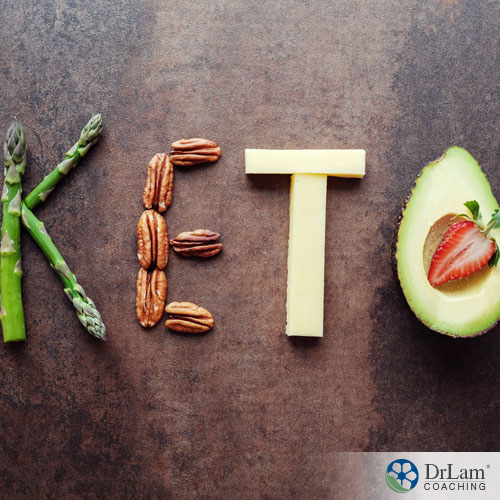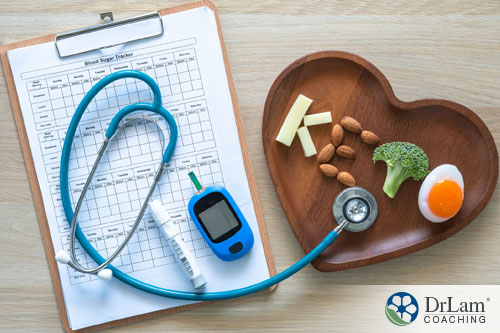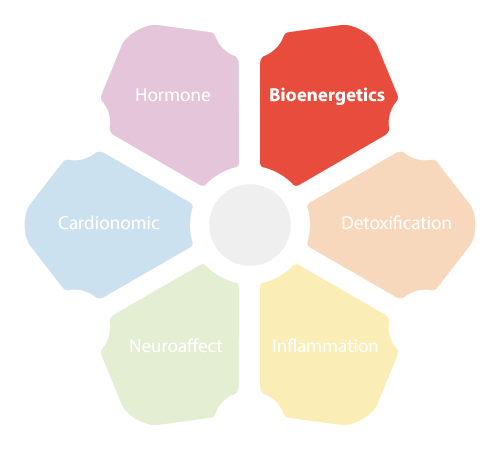 In today's world, an increasing number of people are diagnosed with diabetes. In fact, the American Diabetes Association estimates that in 2015, 30.3 million Americans were living with diabetes. Furthermore, as many as 1.5 million Americans are diagnosed with this disease every year. Because of this, experts are working hard to find a diet that can help lower and stabilize blood sugar levels. This explains the current fascination surrounding the keto diet and diabetes. However, if you’re suffering from Adrenal Fatigue, the keto diet may not stabilize your blood sugar levels. Instead, it could make your condition worse.
In today's world, an increasing number of people are diagnosed with diabetes. In fact, the American Diabetes Association estimates that in 2015, 30.3 million Americans were living with diabetes. Furthermore, as many as 1.5 million Americans are diagnosed with this disease every year. Because of this, experts are working hard to find a diet that can help lower and stabilize blood sugar levels. This explains the current fascination surrounding the keto diet and diabetes. However, if you’re suffering from Adrenal Fatigue, the keto diet may not stabilize your blood sugar levels. Instead, it could make your condition worse.
The ketogenic or keto diet is a suggested diet plan that promotes eating foods that are low in carbohydrates and high in fat. In fact, its name is derived from the term ketosis. This refers to a metabolic state wherein the body relies on fat for fuel. This only happens when there is limited blood sugar, the body’s preferred source of energy.
Today, there are several versions of the keto diet that anyone can try. A standard keto diet is typically composed of 75 percent fat, 20 percent protein, and five percent carbohydrate. On the other hand, a high-protein keto diet usually contains 60 percent fat, 35 percent protein, and five percent carbohydrate. Meanwhile, there is also a cyclical keto diet that allows dieters several periods of higher carbohydrate consumption. Finally, the targeted ketogenic diet lets dieters eat carbohydrates depending on their exercise regimen.
Although somewhat controversial, the keto diet is known to effectively aid the body in shedding unwanted pounds. In fact, one UK study found that keto diet participants lost three times more weight than those who simply followed a healthy diet developed by Diabetes UK. Moreover, proponents of the keto diet also tout the benefits for type 2 diabetes sufferers.
Over the years, there has been a great deal of discussion surrounding the relationship between the keto diet and diabetes. More specifically, the diet has been shown to benefit those with type 2 diabetes.

Type 2 diabetes is a chronic condition that affects the body’s ability to metabolize glucose or sugar. People suffering from this type of diabetes also tend to resist the effects of insulin. In other cases, the body just doesn’t produce enough insulin.
If you’re suffering from diabetes, eating meals that are high in carbohydrates can lead to a significant spike in your blood sugar levels. Over time, high blood glucose can damage blood vessels and nerves, which control the heart. To prevent this from happening, some type 2 diabetes sufferers opt for a low-carb high-fat meal plan, as recommended by the keto diet. That way, they can keep their blood glucose levels at a low and healthy level. And since glucose levels are low, this also decreases the body’s need for insulin.
As straightforward as the relationship between the keto diet and diabetes may seem, any type of restrictive diet can trigger stress in the body. In fact, some research suggests that depriving yourself of any type of food can trigger anxiety and stress. Even worse, a 2009 study revealed that restrictive diets lead to negative reinforcement. That is, you may become stressed to the point that you actually binge on the off-limit foods.
 Typically, the body turns to the NeuroEndoMetabolic (NEM) Stress Response System to deal with stress. The system is made up of circuits that would work in tandem to help you manage the so-called fight-or-flight response. These include the Hormone, Bioenergetics, Cardionomic, Neuroaffect, Inflammation, and Detoxification Circuits.
Typically, the body turns to the NeuroEndoMetabolic (NEM) Stress Response System to deal with stress. The system is made up of circuits that would work in tandem to help you manage the so-called fight-or-flight response. These include the Hormone, Bioenergetics, Cardionomic, Neuroaffect, Inflammation, and Detoxification Circuits.
The Bioenergetics Circuit is made up of the thyroid, pancreas, and liver. Together, they ensure your body has enough fuel to respond to stressful situations. The thyroid regulates the speed of your metabolism. The pancreas is responsible for secreting insulin. Finally, the liver works hard to clear away any toxic metabolites in your blood.
The Bioenergetics Circuit also works closely with the Hormone Circuit. The adrenal glands play a key role in the Hormone Circuit since they secrete the body’s primary stress hormone cortisol, which is responsible for controlling the body’s blood sugar levels. During times of stress, cortisol increases your blood glucose levels to ensure you have enough energy to fulfil the fight-or-flight response. At the same time, cortisol inhibits insulin production allowing glucose to be used immediately instead of being stored.
Usually, once the stressful episode has passed, all the body functions return to normal. However, following a restrictive food diet like the keto diet means your body is constantly stressed. So, as long as you continue to diet, the NEM Stress Response System is forced to keep working hard.
When your body is in a state of chronic stress, the adrenal glands continue to gradually increase cortisol production. Because of this, insulin function is further inhibited, making it harder to control your body’s blood sugar levels.
Eventually, all of the organs involved in the NEM Stress Response become overworked. If your adrenal glands can no longer keep up with the body’s demand for cortisol, you may begin to experience significant hormonal imbalances. This triggers Adrenal Fatigue Syndrome (AFS).
So, as you can see, if you decide to adopt a ketogenic diet over a prolonged period of time, you increase your risk of developing AFS.
 For the Adrenal Fatigue sufferer, one of the first steps towards recovery is lowering stress levels as much as possible. Unfortunately, a keto diet can make this almost impossible. In fact, one Polish study found that a ketogenic diet triggered an increase in cortisol levels among participants. This is a clear indication that the dieting can place your body under additional stress.
For the Adrenal Fatigue sufferer, one of the first steps towards recovery is lowering stress levels as much as possible. Unfortunately, a keto diet can make this almost impossible. In fact, one Polish study found that a ketogenic diet triggered an increase in cortisol levels among participants. This is a clear indication that the dieting can place your body under additional stress.
If this occurs, your Bioenergetics Circuit may also experience further dysfunction. At some point, the insulin in your body will no longer be able to transport glucose to your cells. Because of this, you can develop high blood glucose levels and eventually, Type 2 diabetes. Because of this, your Adrenal Fatigue symptoms can get worse if you decide to adopt a ketogenic lifestyle. In addition, if you’re suffering from Adrenal Fatigue, you may not be able to handle the ketosis that often occurs when you start the diet, leading to a crash.
Instead of relying on the positive dynamic between the keto diet and diabetes, why not turn to a wholesome nutritious diet if you’re already dealing with Adrenal Fatigue. And if you’re concerned about your blood sugar levels, there are many low-sugar whole foods that can readily support your Adrenal Fatigue recovery.
However, if you’re anything new to your diet for the first time, it’s always a good idea to consult with your physician, nutritionist, or a qualified healthcare professional. You could have allergy or intolerance to certain foods, which could make your condition worse. Moreover, some natural foods could actually worsen a pre-existing condition.
That said, here are some adrenal-friendly foods that are naturally low in sugar:
 Replacing simple, refined carbohydrates with whole grains can help stabilize your blood sugar levels. Grains like bran, barley, wild rice, and bulgur are high in fiber, so they’ll keep you fuller for much longer and give you energy throughout the day.
Replacing simple, refined carbohydrates with whole grains can help stabilize your blood sugar levels. Grains like bran, barley, wild rice, and bulgur are high in fiber, so they’ll keep you fuller for much longer and give you energy throughout the day.
Lean meats such as chicken breast contain a good amount of protein while being low in saturated fats. This means it won’t elevate your cholesterol levels, which could put your heart at further risk.
People suffering from diabetes are at a higher risk of stroke and heart disease. Fortunately, fatty fish such as salmon, herring, mackerel, and sardines contains omega-3 fatty acids, including EPA and DHA, and can therefore protect the heart. In addition, fatty fish have anti-inflammatory properties that can help reduce inflammation in your body caused by stress. What’s more, eating fatty fish may also increase your metabolic rate, according to a study performed in the Netherlands.
 Chickpeas rank low on the glycemic index, which makes them great for diabetics. They are also found to lower glucose levels, according to one Australian study. Chickpeas are rich in tryptophan – the amino acid precursor to serotonin. Hence, they may help lower your stress levels.
Chickpeas rank low on the glycemic index, which makes them great for diabetics. They are also found to lower glucose levels, according to one Australian study. Chickpeas are rich in tryptophan – the amino acid precursor to serotonin. Hence, they may help lower your stress levels.
You can roast chickpeas in olive oil and herbs and snack on them throughout the day. Or try turning these delicious legumes into a spicy hummus.
Yogurt is rich in probiotics, which strengthen the immune system. This is important since cortisol suppresses the immune system when you’re dealing with chronic stress gradually making your body weaker. Moreover, low-grade inflammation caused by chronic stress also increases gut permeability, making it easier for toxins to enter your bloodstream.
If you’re buying yogurt, make sure that you select one that doesn’t have any added flavors, coloring, or sugar. Alternatively, why not try soy, almond yogurt, or coconut yogurt. Kefir is another excellent non-dairy alternative.
Consider including these foods to your daily diet and apart from helping to lower and/or stabilize your blood sugar levels, they may also promote adrenal healing. Remember, any diet that significantly restricts the foods you eat can end up causing more stress inside your body. If you do choose to continue with the diet, your body will experience chronic stress within and eventually, you may develop Adrenal Fatigue. For effective adrenal recovery, it’s highly advisable to forego the fad diets and simply concentrate on eating wholesome nutrient-dense foods.
© Copyright 2020 Michael Lam, M.D. All Rights Reserved.
There is a beneficial link between the keto diet and diabetes, according to experts. Because the keto diet is essentially a low carbohydrate, high fat diet, it can help lower blood sugar levels and may even stabilize them. But this diet also creates a stressful environment in the body, eventually triggering Adrenal Fatigue.
